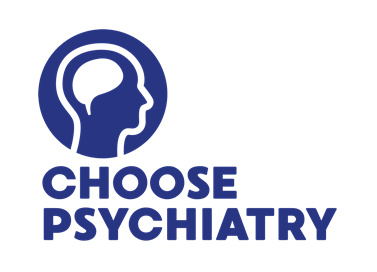Embracing Neurodiversity: My journey from diagnosis to psychiatry trainee
20 November, 2023
This blog post by Dr Wamique Gajdhar is part of the 2023 Choose Psychiatry campaign.
As a core trainee in psychiatry in Wales, my journey has been both challenging and enlightening.
Diagnosed with Bipolar Disorder during my second year of medical school, I faced significant hurdles that required me to take two gaps of three years each to complete MBBS.
However, it wasn't until I arrived in the UK and the commencement of my training that I received additional diagnoses of ADHD and Autism. These revelations gave me a framework to understand many aspects of myself that I had long suspected but couldn't quite grasp.
Neurodiversity comes with advantages and challenges
Neurodiversity, like being neurotypical, comes with unique advantages and challenges. Growing up as a shy child in a small town in central India, my autistic traits cultivated a deep interest in various school subjects.
These subjects offered a glimpse into a world vastly different from mine, sparking an intense fascination. Unlike other kids, my leisure time was spent absorbed in science shows and books.
During my early education, the support of a private tutor masked my hyperactive and inattentive traits. However, the transition
to medical school brought these issues to the forefront.
My struggles with inattention and the ensuing anxiety significantly impacted my ability to cope with the demanding curriculum. The prominence of my bipolar disorder overshadowed potential signs of ADHD, delaying its diagnosis and management.
My ADHD has been a significant asset
Despite the challenges, my ADHD has been a significant asset. It has propelled me towards a constant quest for new information and experiences, enriching my life in countless ways.
My autism, on the other hand, ensures a sustained engagement with topics of interest. This combination of traits has shaped a unique approach to relationships and learning.
My decision to specialise in psychiatry was influenced not only by personal experience but also by the discipline's comprehensive nature. Psychiatry's intersection with human psychology, culture, philosophy, and other humanities branches made it an ideal fit for my diverse interests.
Throughout my journey, I've been open about my mental health, beginning with my early diagnosis of bipolar disorder. This openness has fostered a welcoming and supportive environment among my colleagues in both India and the UK.
As I became more aware of my ADHD and autism, I've had the opportunity to challenge and perhaps change perceptions about working and interacting with neurodiverse individuals.
The support I've received has been instrumental
The support from my colleagues, employers, and supervisors has been instrumental. They have provided necessary adjustments and an environment where I can openly discuss any challenges I face.
This supportive atmosphere is crucial for neurodiverse individuals, emphasizing the importance of seeking and receiving appropriate accommodations.
Since embarking on my psychiatry training, I've realised the invaluable role my doctors have played in helping me reach my professional potential. The unique strengths of neurodiverse individuals, such as attention to detail, innovative problem-solving, perseverance, and a strong sense of justice, are immensely valuable in psychiatry.
As someone who lives this reality, I firmly believe in the significant contributions neurodiverse individuals can make to this field. My journey, marked by both struggles and triumphs, stands as a testament to the unique strengths and perspectives that neurodiversity brings to psychiatry and beyond."
Dr Wamique Gajdhar, Trainee Psychiatrist
Make a difference – choose psychiatry
Considering a career in psychiatry? Hear from working psychiatrists why they chose psychiatry and how rewarding the job can be.
Or if you've taken a break from work or training, let us show you the wide range of support on offer as you return.


